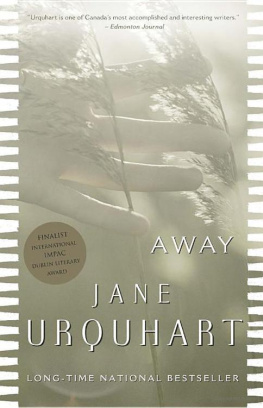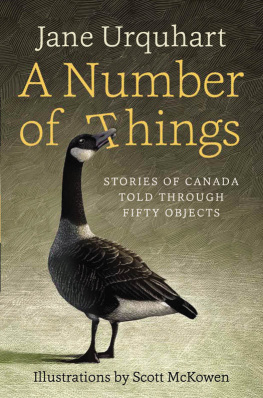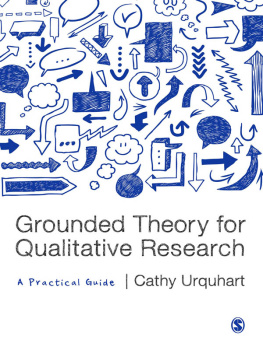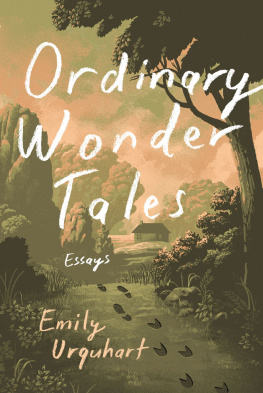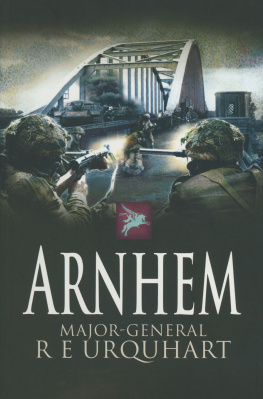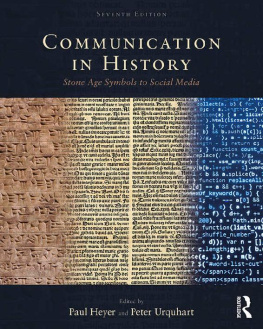Jane Urquhart - Away
Here you can read online Jane Urquhart - Away full text of the book (entire story) in english for free. Download pdf and epub, get meaning, cover and reviews about this ebook. year: 2010, publisher: McClelland & Stewart, genre: Detective and thriller. Description of the work, (preface) as well as reviews are available. Best literature library LitArk.com created for fans of good reading and offers a wide selection of genres:
Romance novel
Science fiction
Adventure
Detective
Science
History
Home and family
Prose
Art
Politics
Computer
Non-fiction
Religion
Business
Children
Humor
Choose a favorite category and find really read worthwhile books. Enjoy immersion in the world of imagination, feel the emotions of the characters or learn something new for yourself, make an fascinating discovery.
- Book:Away
- Author:
- Publisher:McClelland & Stewart
- Genre:
- Year:2010
- Rating:3 / 5
- Favourites:Add to favourites
- Your mark:
- 60
- 1
- 2
- 3
- 4
- 5
Away: summary, description and annotation
We offer to read an annotation, description, summary or preface (depends on what the author of the book "Away" wrote himself). If you haven't found the necessary information about the book — write in the comments, we will try to find it.
Away — read online for free the complete book (whole text) full work
Below is the text of the book, divided by pages. System saving the place of the last page read, allows you to conveniently read the book "Away" online for free, without having to search again every time where you left off. Put a bookmark, and you can go to the page where you finished reading at any time.
Font size:
Interval:
Bookmark:
This book is a work of fiction; all characters, events, situations, relationships, and in some cases geographical locations are either a product of the imagination or have been worked on and transformed by the imagination. As a result, the physical and social make-up of nineteenth-century County Antrim in Ireland, or Elzivir Township and Northumberland County in Canada have occasionally been altered to meet the needs of the story.
Nonetheless, many scholarly works inspired and informed parts of the narrative. Of these the most important to me were: The Great Hunger by Cecil Woodham-Smith; Visions and Beliefs in the West of Ireland by Lady Gregory; The Great Migration by Edwin C. Guillet; and MCahans Local Histories published by the Glens of Antrim Historical Society. Two books by T. P. Slattery, The Assassination of DArcy McGee and They Got to Find Me Guilty Yet, were enormously helpful to my understanding of the political forces surrounding the assassination of McGee. To this day uncertainty regarding the identity of the assassin remains. This book does not pretend to solve the mystery.
I first heard the traditional folksong Bonny Portmore on Loreena McKennitts recording entitled The Visit (manufactured and distributed by Warner Music Canada). If I Were a Blackbird is traditional as well. I have also used two lines from The Emigrant by Belfast poet Joseph Campbelle. The epigraph at the beginning of the book is a traditional Irish triad taken from Dnta Ban: Poems of Irish Women Early and Modern, selected and translated by P. L. Henry (Dublin: The Mercier Press, 1991). All other songs and poems are inventions of the author, influenced, in some instances, by the reading of anonymous Irish poetry in translation.
Of the many people who either read and commented upon the manuscript or who aided with my research I would like especially to thank Stuart MacKinnon, David Staines, Dr. Palmer Patterson, Victoria Glendinning, Nelson Ball, Greg Murphy, Clifford Quinn, Mary Dalton, Tony Urquhart, Janet Turnbull Irving, Dr. Arnulf Conradi, Ellen Levine, and Alex Schultz.
Thanks also to Pamela Fawcett for her excellent typing skills.
I owe a great debt to the University of Waterloo Library and to Memorial University of Newfoundland Library where much of my research took place, and to the Canada Council and the Ontario Arts Council for financial assistance during the tenure of this project. I would also like to thank the English Department of Memorial University of Newfoundland and the English Department of the University of Ottawa for enjoyable and productive writer-in-residencies.
And, once again, a special thank you to Ellen Seligman.
BOOKS BY JANE URQUHART
FICTION
The Whirlpool (1986)
Storm Glass (short stories, 1987)
Changing Heaven (1990)
Away (1993)
The Underpainter (1997)
The Stone Carvers (2001)
A Map of Glass (2005)
Sanctuary Line (2010)
NON-FICTION
L.M. Montgomery (2009)
POETRY
I Am Walking in the Garden of His Imaginary Palace (1981)
False Shuffles (1982)
The Little Flowers of Madame de Montespan (1985)
Some Other Garden (2000)
AS EDITOR
The Penguin Book of Canadian Short Stories (2007)
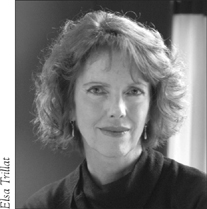
Jane Urquhart was born in Little Long Lac, Ontario, and grew up in Toronto. She is the author of seven acclaimed novels: The Whirlpool, which received Le prix du meilleur livre tranger (Best Foreign Book Award) in France; Changing Heaven; Away, winner of the Trillium Book Award and a finalist for the prestigious International IMPAC Dublin Literary Award; The Underpainter, winner of the Governor Generals Award and a finalist for the Rogers Communications Writers Trust Fiction Prize; The Stone Carvers, which was a finalist for The Giller Prize and the Governor Generals Award, and longlisted for the Booker Prize; A Map of Glass, a finalist for a regional Commonwealth Writers Prize for Best Book; and, most recently, Sanctuary Line. She is also the author of a collection of short fiction, Storm Glass; four books of poetry; a biography of L.M. Montgomery for the Extraordinary Canadians series; and the editor of The Penguin Book of Canadian Short Stories. Her work has been translated into numerous foreign languages.
Urquhart has received the Marian Engel Award and the Harbourfront Festival Prize, and is a Chevalier dans lOrdre des Arts et des Lettres in France and an Officer of the Order of Canada. She has received numerous honorary doctorates from Canadian universities and has been writer-in-residence at the University of Ottawa and at Memorial University of Newfoundland, and held the Presidential Writer-in-Residence Fellowship at the University of Toronto.
Jane Urquhart lives in Northumberland County, Ontario, and occasionally in Ireland.
T HE women of this family leaned towards extremes.
All winter they yearned for long, long nights and short precise days; in the summer the sun in the sky for eighteen hours, then a multitude of stars.
They kept their youth if they survived well past their childbearing years until, overnight at sixty, they became stiff old ladies. Or conversely, they became stiff old ladies at twenty and lived relentlessly on, unchanged, for six or seven decades.
They inhabited northern latitudes near icy waters. They were plagued by revenants. Men, landscapes, states of mind went away and came back again. Over the years, over the decades. There was always water involved, exaggerated youth or exaggerated age. Afterwards there was absence. That is the way it was for the women of this family. It was part of their destiny.
Esther OMalley Robertson is the last and the most subdued of the extreme women. She was told a story at twelve that calmed her down and put her in her place. Now, as an old woman, she wants to tell this story to herself and the Great Lake, there being no one to listen. Even had there been an audience of listeners, the wrong questions might have been asked. How could you possibly know that? Or, Do you have proof? Esther is too mature, has always been too mature, for considerations such as these. The story will take her wherever it wants to go in the next twelve hours, and that is all that matters; this and the knowledge that for one last night she will remain beside the icy, receptive waters of the Great Lake.
She paints a landscape in her mind, a landscape she has never seen. Everything began in 1842, she remembers her grandmother Eileen telling her, on the island of Rathlin which lies off the most northern coast of Ireland. Esther allows rocks, sea, to form in her imagination. There would be a view of a coastline with cliffs. It was the morning that an unusual number of things came in with the tide, causing celebration and consternation among the islanders and permanently fixing the day itself in legends that are recounted around fires at night. Your great-grandmothers name was Mary, Old Eileen had said to Esther. She lived with her widowed mother in a cabin three fields from the sea. And it was Mary who was the first to approach the beach that morning.
The night before, a furious storm had reduced the circumference of the island by at least ten feet. It had snatched over-turned curraghs from the shore and dispatched seven of Marys favourite boulders to God knows where. The sandy beach nearest the girls cabin had been made off with as well and had been replaced with a collection of stones resembling poor potatoes. No one not even those who had spent some time on mainland beaches had seen their like before and they were rumoured to have come from a land where no grass grew and nothing breathed. Parts of the neighbouring cliffs had tumbled into the oceans embrace, taking with them several sheep. It would come to be said that these animals had been replaced by less domestic and less stupid beasts who scuttled into the earth at first light and whose cries could be heard coming from the hills at twilight the third Sunday of every month from then on.
Font size:
Interval:
Bookmark:
Similar books «Away»
Look at similar books to Away. We have selected literature similar in name and meaning in the hope of providing readers with more options to find new, interesting, not yet read works.
Discussion, reviews of the book Away and just readers' own opinions. Leave your comments, write what you think about the work, its meaning or the main characters. Specify what exactly you liked and what you didn't like, and why you think so.

